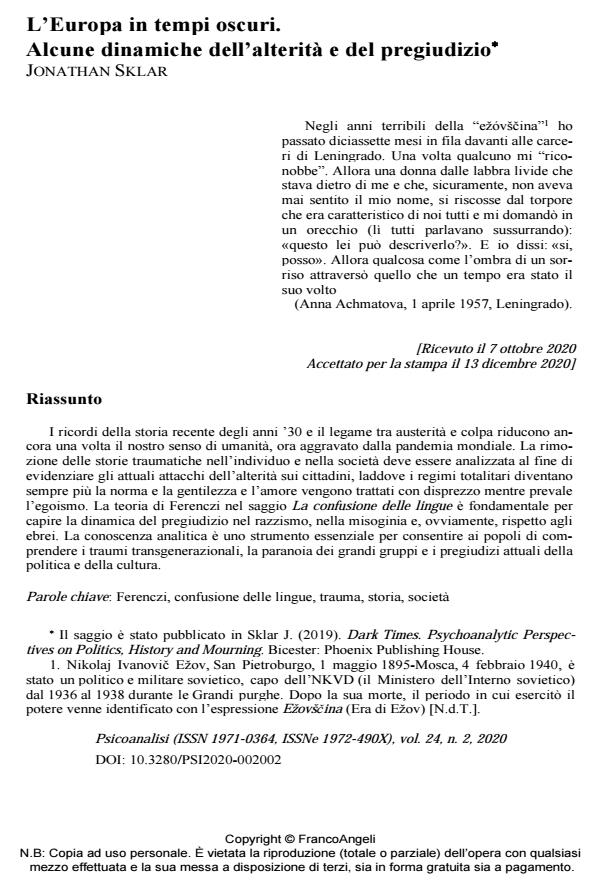Europe in Dark Times. Some Dynamics in Alterity and Prejudice
Journal title PSICOANALISI
Author/s Jonathan Sklar
Publishing Year 2021 Issue 2020/2
Language Italian Pages 16 P. 25-40 File size 236 KB
DOI 10.3280/PSI2020-002002
DOI is like a bar code for intellectual property: to have more infomation
click here
Below, you can see the article first page
If you want to buy this article in PDF format, you can do it, following the instructions to buy download credits

FrancoAngeli is member of Publishers International Linking Association, Inc (PILA), a not-for-profit association which run the CrossRef service enabling links to and from online scholarly content.
Remembrances in history as close as the 1930’s and the link between austerity and blame are leading again to a wholesale diminutions of our humanity now made worse by the world-wide pandemic. The repression of traumatic histories in the individual as well in society require exploration today in order to expose the current alteric attacks on citizens as totalitarian regimes become more the norm and kindness and love are treated with contempt as selfish-ness prevails. Ferenczi’s theory in Confusion of Tongues is relevant in the dynamics of preju-dice in racism, misogyny and, of course about the Jew. Analytic knowledge is an essential tool for citizens in society to understand transgenerational trauma, large group paranoia and prejudice in our current politics and culture.
Keywords: Ferenczi, confusion of tongues, trauma, history, society
Jonathan Sklar, L’Europa in tempi oscuri. Alcune dinamiche dell’alterità e del pregiudizio in "PSICOANALISI" 2/2020, pp 25-40, DOI: 10.3280/PSI2020-002002